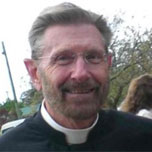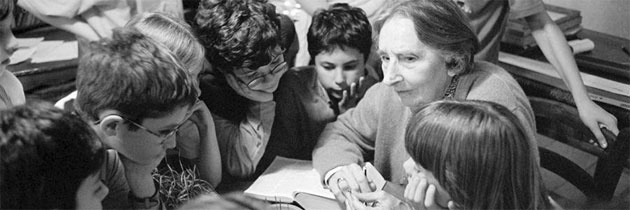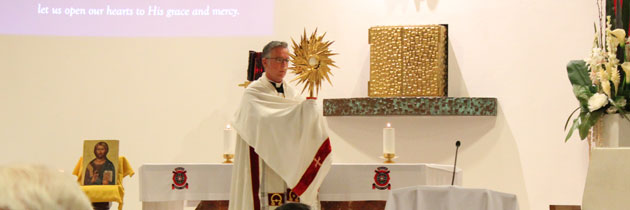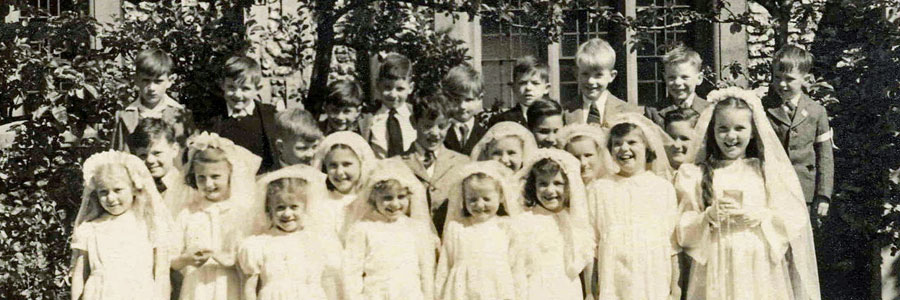Only in mature years of ministry did I undertake a rural pastorate. It took me some time to identify the differences from urban ministry, and the purpose of this article is to share my reflections on how ordained work in the country varies from the patterns of service appropriate to city life. I hope this article will offer insights not just to anyone about to engage in rural pastoral ministry for the first time, but also to those still in cities or those who have been in the countryside for some time.
In my experience there are two main differences between urban and rural ministry and the first that stands out for me is that in the countryside one is much more dealing with a community that has complex interpersonal relations of conflict and of loyalty, and where there are more shared but implicit values. The other big one is that in some respects rural people have more diverse skills because there is less specialisation in occupations than for urban people and consequently less diversity in broad-group skills categories and personality characteristics. Particularly lacking may be the human skills that arise from working in complex organisations.
Both of these differences impinge profoundly on ministry. They arise from what amounts to a litany of psychological, sociological and political realities which cumulatively contextualise and shape the experience of rural life. In a somewhat idiosyncratic order, I want to highlight a series of things which maybe all of us in pastoral work take for granted, but are all, to my mind, key features of ministry in general and key differences between rural and urban contexts. The chosen set of perspectives is somewhat eclectic, but I hope each point provoke thought.
The Pastoral Perspective
One feature the rural pastor may encounter is a Short term focus. A‘forward looking’ view involves adopting long-term goals that will not appeal to people whose outlook is ‘short term’. This requires great optimism on the part of the pastor, and perseverance in the cultivation of optimism among his people. This is partly explained by the difference between what some call High and Low context cultures. People who live in ‘high context’ cultures bring a lot of implicit understanding of one another and of shared expectations. People who do not share their implicit understanding and expectations tend to make overt their expectations, and start introducing and talking about ‘protocols’ that may range over such things as the use of inclusive language or the way to conduct a meeting. This often does not go down well in rural settings, and it is well for a pastor to try to learn what are the implicit values that are generally found in ‘high context’ rural cultures, and to use this understanding to work toward implementing ‘gospel values’. In turn the importance of Local autonomy begins to play a part. Rural people tend more to emphasise local decision making, and this gives rise to a suspicion of external authority. Reference, for example, to what canon law has to say on some local issue is likely to be taken as an arbitrary intrusion of external authority. Priests who tend to refer to external authority in adjudging matters will often have a larger apologetic task in rural communities.
Gossip and the Gospel
Network values. Rural people tend to assimilate information and values through local social networks rather than by formal media. This easily degenerates to ‘gossip’. Yet rural priests especially have to build networks that allow ‘talking through’ of what they want to get across, and the values and perspectives that they wish to promote. This however calls for great discretion, as a misplaced word can be used in damaging ways, and, unless the pastor has a good memory for the kinship map of his parish, a misplaced word may be voiced to a kinsman or to someone who when alliances shift will be ready to use it mischievously: ‘Be wise as a serpent …’ (Mt 10.16).
In this context Shame becomes an issue. Dealing with the consequences of something as basic as sin is something any pastor will be almost too familiar with. However, loss of face may have ramified effects in rural settings. In urban settings, people usually have other social alternatives whereas in rural settings there may be nowhere else to go – hence loss of face may have wider damaging impacts for rural ministry. The distinction between objective offence and loss of social standing is not easily cultivated, and people probably won’t want to hear about ‘guilt’, but the more it is appreciated the less the significance of ‘face’.
Challenging Social Structures
The pastor in a rural setting needs to be sensitive to Social balance. Nearly all the ‘hard sayings’ of Our Lord in the gospels deal in ‘justice’ terms, and not in ‘social balance’ terms (it is Who did the father’s will? rather than Who has such and such a relationship with the father that networks to such and such relations with the local community? (cf, Mt 21.31)). This perspective often conflicts with rural local values, where the pressure is to go soft on justice if this too disrupts local social balance, and diminishes someone of standing in the community. A priest anywhere who defends the rights of the downtrodden as a group or a particular downtrodden person tends to be unpopular. In rural settings, priests need to recognise the particular prevalence of social balance, because the building of appreciation of and commitment to justice values is a big pastoral challenge.
Indulging in a little jargon, it also behoves the pastor to be aware of the concept of ‘inferior’ – ‘when people act in the areas of their personalities that are least strong or least developed’. Someone acting in their ‘inferior’ is more likely to act poorly. Hence a priest who wants to take a decision that is going to be very challenging to the womenfolk in his parish needs to take a great deal of care to explain his reasoning and to foster networks that interpret his reasoning in women’s groups in the community. Likewise men acting in their inferior can be a particular menace when operating in their relatively undeveloped ‘feeling’ personalities, and the displays of bad temper can be shocking and uncontrolled. A priest who wants to take a decision that is going to be very challenging to the menfolk in his parish needs to take a great deal of care to avoid personalisation of the discussion, and to foster men’s networks that reduce the emotional heat of men who may take the decision badly. This involves much use of factual reality to help such men to retain or to regain their inner state. Priests have relentlessly to stick to the issues, the objective issues in trying to bring around such people.
Embeddedness is also a problem when engaging with social structures. Often the progress of the gospel involves the displacing of other values, and this will be more difficult where it more comes into conflict with socially embedded values. The social embeddedness of values will usually be more marked in rural than in urban societies, and so drawing people to build new values may in one aspect be more difficult. In another aspect it may be less difficult, because a whole community may be so drawn, rather than simply individual people. (This is the story of ‘community conversations’ in small-scale societies in the past.)
Thinking about Feeling
It is hardly news to experienced pastors that people with ‘feeling’ personalities tend to make their judgements more subjectively according to personal and inter-personal values. I hope it won’t ruffle too many feathers to generalise that women are often more adept at making judgements of this kind, and women will often more help the pastor where they appreciate what he is doing in ‘feeling’ terms. Where what he is doing sits ill with ‘feeling values’, the task is harder with feeling personalities who can simply dig in their heels to either logical or feeling arguments. A priest is best to keep going a string of practical projects that can involve such people in doing constructive things. This can be hard where the ‘take over’ dispositions again assert themselves (for example, in one set of women who run the school canteen or who run the catering for church functions). There are no easy remedies where particular personality types are disposed to particular difficulties and where commonality or reduced variety of personality type exaggerates the difficulty. Sometimes the only option will be for the priest to foster a new group in a new variation of practical activities (regrouping, rather than reform).
‘Thinking’ personalities. People with ‘thinking’ personalities tend to make their judgements more objectively according to rational cognitive processes. Men are often more adept at making judgements of this kind, and men will often more help the pastor where they appreciate what he is doing in ‘thinking’ terms. Where what he is doing sits ill with their ‘thinking values’, the task is harder with thinking personalities. (For example, ‘a sower went out to sow’ (Mt 13.3) is not likely to make sense to a ‘thinking’ personality, because no ‘thinking’ person – at least, no sensory ‘thinking’ person – would sow seed on infertile ground. It requires some intuition to appreciate why one might so sow!) Further, in identifying ‘thinking’ personalities, it is important not to confuse thinking ability (or ‘firepower’) with the thinking disposition. People who think slowly or even poorly may nevertheless have a strong preference for making cognitive rational decisions, and just require a simpler decision model and longer time to make a decision, and maybe even longer time to re-make a decision.
Not for a moment am I suggesting that these issues are not important in an urban setting. Priests have to recognise the different dispositions of different people for making decisions, and to appeal to these different dispositions in order to bring people to support priestly leadership (a kind of application of St Paul’s dictum, ‘I make myself all things to all men …’ (1Cor 9.22). This is true anywhere. In rural settings, however, the way that people group or segment and the gender issues in grouping and in segmentation may more sharply divide the differences in personality disposition that a priest faces. The rural pastor needs to be keenly aware of the configuration of kinds of personalities in his community as he leads people in directions that are positive and forward-looking.
Values, Personalisation and Power
Catholic faith is a rather rational religion that makes great demands upon adherence to values. Where Catholic faith conflicts with values of a less-examined kind, it can be hard to construct an integrated faith. Unexamined values (such as lead to a hostility toward outsiders), can then be left year after year sitting uneasily with the teachings and practice of Catholic faith. It can be very isolating for people who make the journey from unexamined values to objective values that are governed by principles, and in rural communities the sense of loneliness can be sharper because values may be more shared. Those who do not share the prevalent values (and/or the prevalent group personality type) may simply not be noticed, or even ignored. Building inclusive values anywhere is always a difficult task for priests, and not least in rural settings. Including people who are on the ‘outside’ and un-noticed is difficult in any setting, but may be more marked in rural settings. Because people generally are not intellectual, the building of better values has to focus on praxis – on the doing of better values and the homiletic applications of responding to the Gospel and to the teaching of the Church.
In rural societies personalisation and subjectivity may also be a factor. Where people tend more to be more known, the tendency to ‘personalisation’ of decisions is greater and the attendant tendency to subjectivity in decision making is heightened. Making decisions that are even or non-discriminatory between persons are more difficult in such settings, and priests will require more robustness and perseverance to uphold objective values. But faithfulness to Christ and his Church allow no alternative, and the Holy Spirit is given to ‘those who ask’ (Lk 11.13).
Lastly, it may seem like an obvious point, but patterns of power may cause a distinct problem for the pastor in the countryside. A conflict between ‘being liked’ or ‘being faithful to Christ and his Church’ may be perceived as promoting a ‘power distance’ between priest and people in rural setting where power distances are low. It is hard to portray the nature of ‘authority’ where people think in terms of ‘power’, but that is the challenge.
Summing up
While different personalities show different preferences and aptitudes in the conduct of life, the challenge for the pastor is to foster personal development that rounds out the personality and tempers strength and strengthens weakness (cf. Col 1.28). For a Catholic pastor in a rural setting, this necessarily entails building community where everyone is a ‘son’ or ‘daughter’ of God the Father, and a ‘brother’ or ‘sister’ of Christ and his people. The rural pastor may have more to work with because of the interdependence of the local and ecclesial community and likewise there may be more adherence to common human decencies. However, human strengths may also be human weaknesses and some features of rural life demand a pastoral sensitivity that is subtly different from the urban setting. Although daunted, we may be consoled wherever we are by St Paul’s point that when we are weak then are we strong (2 Cor 12.10). Our endeavours to build community in a rural setting let us rely on the One who gives us strength.






